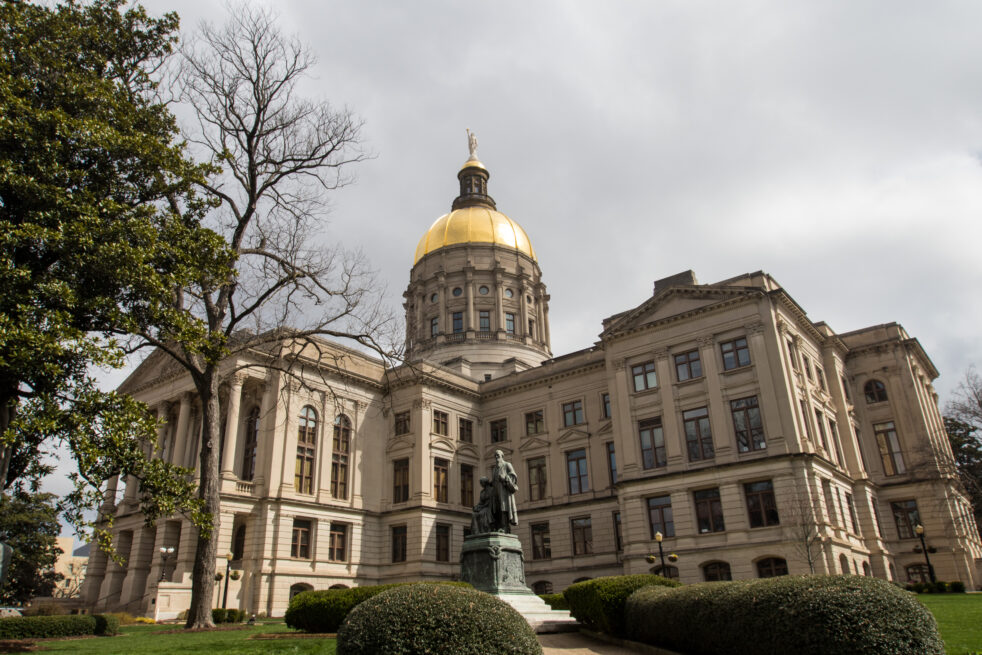On Friday, July 1, Students Organizing for Sustainability (SOS) at Tech jointly submitted a statement to the Georgia Public Service Commission advocating for an increase in clean energy investment with a coalition with 13 other undergraduate student-led sustainability organizations around the state of Georgia.
The coalition submitted the joint statement in the hopes of influencing environmental action at both state and local levels and involving students at their respective educational institutions in the process.
“Students Organizing for Sustainability (SOS) is a student-run organization at Georgia Tech focused on advancing sustainable initiatives on campus and in our local communities. We work on educating students about environmental issues and work with the GT students and the administration to implement eco-friendly policies and practices,” said Mark Putman, a fourth-year BME and vice president of SOS.
The joint group of students has been working to spread their message, and maintaining communication has been key to bringing attention to state and local sustainability laws and regulations.
“As a collective group of student leaders, we have worked together to reach out to as many students as possible. In the writing process, each leader has been responsible for keeping students at their respective university in the know. We have simultaneously been creating social media posts that will go out on all organizations’ platforms, showcasing our collective efforts for a more sustainable energy future and providing links for the official public statement,” said Anna Møller, a fourth-year psychology major at the University of North Georgia (UNG), and president of the Sustainability Club of North Georgia.
While the joint statement has had significant contribution from collegiate-affiliated clubs, student organizations outside of the collegiate environment have also contributed immensely to the project. The Georgia chapter of Voters for Tomorrow, for instance, was one of the signatories of the statement.
“Voters of Tomorrow is a student-led organization that works towards electing candidates that stand for Gen Z values. We know best how to turn out our own generation best at the ballot box,” said Vikas Madhav Nagarajan, a PUBP graduate student at the Institute and member of Voters of Tomorrow.
The organization has been extremely supportive of the statement, with Nagarajan saying, “Our statement outlines a future for our state towards sustainability. It stresses on energy efficiency and the pathway towards making Georgia a less fossil fuel-dependent state and a more renewable powered state. It also stresses on the public service commision to get their act together for the people of Georgia.”
With the Supreme Court’s recent ruling in West Virginia v. EPA narrowing the breadth of the Environmental Protection Agency’s (EPA) power to regulate carbon emissions, the joint student group sees both state and local governments as increasingly important in the next steps to combat climate change.
“Given the way the court has ruled, it is important that local bodies step up and fight for their citizens. It is the duty of the local government to mitigate against public health emergencies and climate risks,” Nagarajan said. “It is their duty to ensure that they can lobby the state to set emission standards given the recent SCOTUS ruling and implement local laws and enforce standards of quality for air, water and soil for their jurisdiction.”
Putman echoed Nagarajan’s sentiment, saying, “we must pursue climate action at every level, at every opportunity. This not only increases our chances of success, but further emphasizes to the rest of our generation how important the civic process is to our lives and our futures.”
There are a multitude of sustainable tools and systems that state and local governments can support and invest in.
“State legislatures establish regulations on power plants and provide the incentives to transition to clean energy and green transportation,” Putnam said. “Local governments establish standards for energy-efficient housing, [provide] infrastructure for green transportation (transit, walking/biking, EVs [electric vehicles]) and manage waste management.”
The statement’s effects will be known in full on July 21, when the Public Service Commission releases their final energy plan. Until then, the coalition is urging students, both at the Institute and around the state, to do whatever they can to help.
Nagarajan notes that ultimately, the best way to contribute to their cause is to “… vote in every election. Vote to make sure that we can live in a world that respects your voice and one which you can breathe in, powered by sustainable sources of energy and fighting against climate change.”
